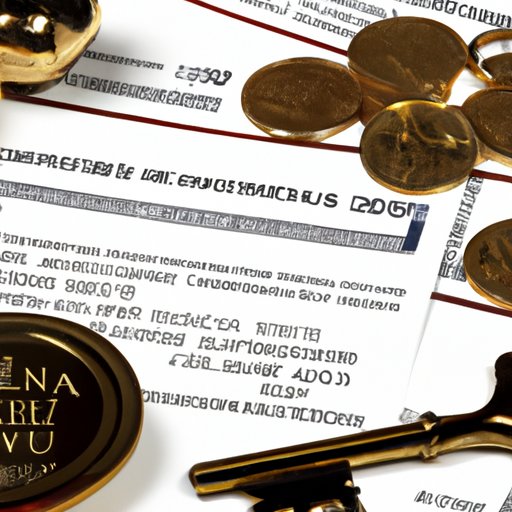Introduction
Inflation is a term used to describe the overall rise in prices of goods and services over time. When inflation occurs, the purchasing power of money decreases, which means that it takes more money to purchase the same goods or services as before. This can have a serious impact on both businesses and individuals, as it can affect their ability to save and invest for the future. As such, it’s important to understand how to best protect yourself from the effects of inflation by making smart investments.

Analyzing the Different Types of Investments to Make During Inflation
When it comes to investing during inflation, there are several different types of investments you can make. These include real estate, precious metals, and bonds. Each of these has its own pros and cons, so it’s important to do your research and understand the risks associated with each type of investment before making any decisions.

The Pros and Cons of Investing in Real Estate During Inflation
Real estate is one of the most common investments people make during inflation. The main advantage of investing in real estate is that it typically appreciates in value over time, meaning that you could potentially make a profit if you choose to sell the property later on. Additionally, real estate can provide you with a steady stream of income in the form of rent payments from tenants. However, investing in real estate also comes with some risks. The value of a property can fluctuate depending on market conditions, and there are costs associated with purchasing and maintaining a property.
How to Protect Your Portfolio from the Effects of Inflation
There are several strategies you can use to protect your portfolio from the effects of inflation. One of the most important things you can do is diversify your investments. By spreading your money out among different asset classes, such as stocks, bonds, and cash, you can reduce the risk of losing all of your money if one type of investment performs poorly. Additionally, you can hedge against inflation by investing in assets that tend to increase in value when inflation rises, such as real estate and precious metals.
You can also use hedging strategies, such as short selling and futures contracts, to protect your portfolio from the effects of inflation. With short selling, you borrow shares of a particular stock and then sell them, hoping that the price will go down so that you can buy them back at a lower price. With futures contracts, you agree to buy or sell a specific asset at a predetermined price in the future. Both of these strategies can help you protect your portfolio from the effects of inflation.
Strategies for Investing in Precious Metals During Inflation
Precious metals, such as gold, silver, and platinum, have long been considered an effective hedge against inflation. Gold, in particular, is seen as a safe haven asset and has historically held its value better than other assets during periods of high inflation. When investing in precious metals, it’s important to remember that the prices of these metals can fluctuate significantly, so you should only invest what you can afford to lose.
It’s also important to understand the different types of precious metals available. Gold is the most popular choice, but silver and platinum can also be good options. Additionally, you’ll need to decide whether you want to invest in physical metals or paper investments, such as ETFs or mutual funds. Each option has its own advantages and disadvantages, so it’s important to do your research before making any decisions.

Investing in Bonds as a Hedge Against Inflation
Bonds can also be a good option for investors looking to protect their portfolios from the effects of inflation. There are three main types of bonds: government bonds, corporate bonds, and municipal bonds. Government bonds are issued by the federal government and typically offer low interest rates but are considered a safe investment. Corporate bonds are issued by private companies and often offer higher yields but are riskier than government bonds. Municipal bonds are issued by state and local governments and typically offer tax-free returns.
When investing in bonds, it’s important to keep in mind that the value of bonds can decrease if interest rates rise. Additionally, bond prices tend to fall when inflation increases, so it’s important to consider the current rate of inflation when making any investment decisions.
Conclusion
Inflation can have a significant impact on your finances, so it’s important to understand the different types of investments you can make to protect your portfolio. Real estate, precious metals, and bonds are all viable options for protecting your portfolio from the effects of inflation. Additionally, it’s important to diversify your investments and use hedging strategies to further protect your portfolio. By taking the time to research and understand the different types of investments available, you can make informed decisions that will help you protect your portfolio from the effects of inflation.
(Note: Is this article not meeting your expectations? Do you have knowledge or insights to share? Unlock new opportunities and expand your reach by joining our authors team. Click Registration to join us and share your expertise with our readers.)
